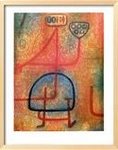Identify the work, its author, and date.
1.
"Now in a meeting like this one, where so much is at stake, where so many brilliant men are competing to think up intricate strategies of war, what if an insignificant fellow like me were to get up and advise going on another tack entirely? Suppose I said the king should leave [a foreign country] alone and stay at home, because the single kingdom of [the home country] all by itself is almost too much for one man to govern, and the king should not dream of adding others to it? Then imagine I told about the decrees of the Achorians, who live off the island of [yet another country] toward the southeast. Long ago, these people went to war to gain another realm for their king, who had inherited an ancient claim to it. . . When they had conquered it, they soon saw that keeping it was going to be as hard as getting it had been. Their new subjects were continually rebelling or being attacked by foreign invaders, the Achorians had to be constantly at war for them or against them, and they saw no hope of ever being able to disband their army. In the meantime, they were being heavily taxed, money flowed out of their kingdom, their blood was being shed for the advantage of others, and peace was no closer than it had ever been. The war corrupted their own citizens by encouraging lust for robbery and murder; and the laws fell into contempt because their king, distracted with the cares of two kingdoms, could give neither one his proper attention.
When they saw that the list of these evils was endless, the Achorians took counsel together and very courteously offered their king his choice of keeping whichever of the two kingdoms he preferred, because he couldn't rule them both. . .
[So] suppose I told the . . . king's council that all this warmongering, by which so many nations were kept in turmoil as a result of one man's connivings, would almost certainly exhaust his treasury and demoralize his people, and yet in the end come to nothing, through some mishap or another. And therefore he should look after his ancestral kingdom, improve it as much as he could, cultivate it in every conceivable way. . . How do you think, my dear [name], the other councillors would take this speech of mine?"
"Not very well, I'm sure," said I.
2.
“It was only one example of a visitor to the Oval Office not telling the president the whole story or the truth. Likewise, in these moments where [name] had someone from the field there in the chair beside him, he did not press, did not try to open the door himself and ask what the visitor had seen and thought. The whole atmosphere too often resembled a royal court, with [name] and [name] in attendance, some upbeat stories, exaggerated good news and a good time had by all.”
1. _________
2. _________
A. Bob Woodward, State of Denial, 2006 (Source: NY Times)
B. Thomas More, Utopia, 1516
Gold stars for those who correctly marked 1B, 2A, as the differences between them are slight: plus ca change, plus c'est la meme chose.
Western Civ grads likely recall More's treatise most for its fictive portrayal of the island of Utopia (from the Greek ou [not] + topos [place] = "noplace"), whose every facet of life and government More contrasted, implicitly, to conditions in England under Henry VIII. Raphael Hythloday's monologue on the isle takes up only Book II of the volume, however. Book I begins as "Thomas More" and his companion, Peter Giles, implore the Utopian traveler to "enter some king's service." As Giles entreats him: "Your learning and your knowledge of various countries and peoples would entertain [the king], while your advice and your supply of examples would be very helpful in the counsel chamber." Raphael refuses, and the book recounts his reasons for rejecting public service, chief among them his observation that counsel chambers typically stifle the airing of contrary views, and serve to reinforce the self-interest of their members. Have a look, Bob; it might give you some prose.
Indeed the *central question of Utopia is what role men [sic] of letters and learning should play in the creation and critique of public policy. This was the great call of the humanists: while the scholastics had directed their intellect to matters of theology (no less a public cause, at that time, but different in focus), and counsel chambers were attended chiefly by courtiers who had inherited their rank, it was humanists such as Thomas More who argued that the end of education (for them, the study of ancient Greece and Rome) should be public service.
How interesting then, that our "education president," who spouts humanist truisms like a fidgety bingo caller, should create in his chambers his own fictive island, where he reigns with the obtuse indifference of the Achorian king.
Of course, the weekend's political chat shows, especially those of the Fox variety, have been animated by attempts to "shoot the messenger" (a phrase we owe to Shakespeare, from Antony and Cleopatra), but I reckon it will be hard to bury big Bob, whose previous two books on "Bush at War" disqualify him as an dyed-in-the-wool Bush-basher, and whose message in this book merely restates what is already the conventional wisdom.
Thus another quote from Shakespeare (this from Henry IV, Pt. 1): wisdom cries out in the streets, and no man regards it. . .
Post-script Weds. Oct. 5: I shared this riveting parallel with my students this week. I can do that up here; you're not likely to find many pro-Bush undergrads. What's more, I wanted to show them the way in which the central concerns of Utopia remain vital and relevant. Finally, we observed how Woodward's title could be read as a variation on More's: how just as U-topia means "no place," state of denial -- where a denial means "no" -- also means "no state." Surely a dystopia if ever there was one.
Sunday, October 01, 2006
Pop Quiz
Subscribe to:
Post Comments (Atom)



No comments:
Post a Comment